11 March saw the event ‘Vocational training of women: an excellent investment’ sponsored by Soroptimist International of Europe (SIE) and co-sponsored by Women for Water Partnership (WfWP), Business and Professional Women (BPW) and Soroptimist International (SI).
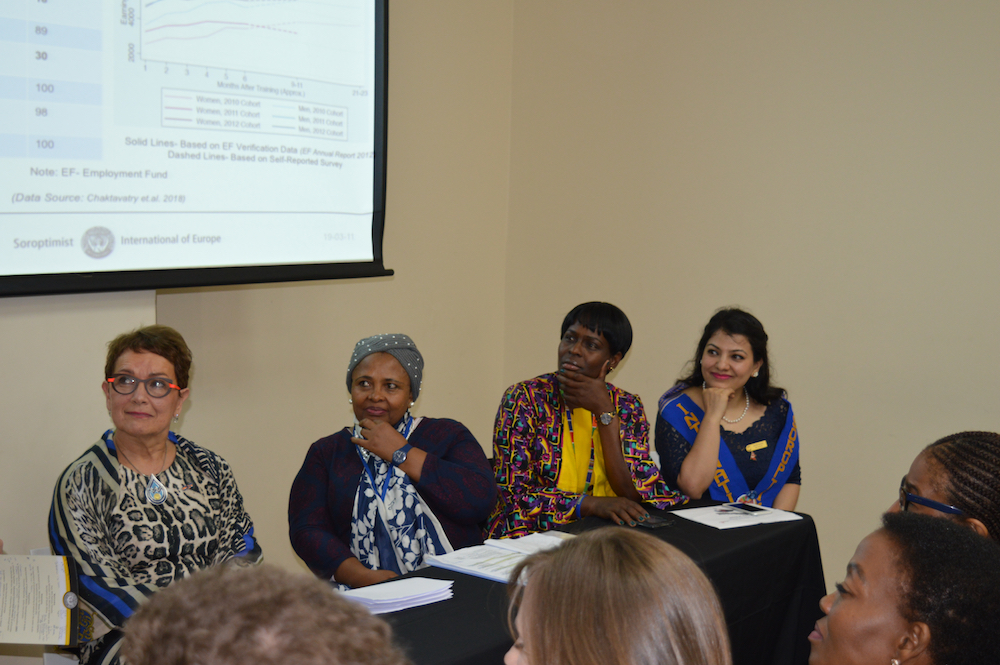
Photo: Panelists at the event Vocational Training of Women: an excellent investment
Access to sustainable water-related services and infrastructure matters. Dysfunction, whether due to inadequate maintenance, weak management, limited structural funding or a shortfall in skilled and technical labour, exacerbates the cycle of poverty, gender inequality and risks the attainment of the targets set out in the UN sustainable development goals. Due to gendered socio-economic roles, women remain disproportionately affected by water scarcity, and poor management of resources, and yet they are often excluded from decision-making.
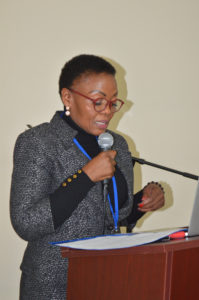
Photo: Hon. Ms Pinky Kekana, Minister of the Ministry of Communications of South Africa
This event, delivered to a packed auditorium, explored the critical role women hold in responding to ongoing skills shortages, and in the planning and delivery of sustainable water resource management; underlining the power of investment in the vocational training of women and girls. Expertly moderated by Lesha Witmer, of Women For Water Partnership, the event commenced with a Welcome given by Hon. Ms Pinky Kekana, Minister of the Ministry of Communciations of South Africa. Introducing the interlinked topics of water, women and the power of vocational training, Tshwete described water as a catalyst for economic development in South Africa stating: “water is life; sanitation is dignity”.
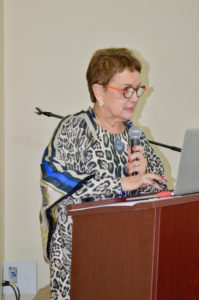
Photo: Mariet Verhoef-Cohen, President of Women For Water Partnership and Soroptimist International.
The Keynote was delivered by Mariet Verhoef-Cohen, in her capacity as President of Women For Water Partnership and Soroptimist International. President Mariet explored the value and importance of women’s participation within the water sector, underlining the necessity of vocational training as a tool in achieving SDG 6. Describing the gaps in knowledge and skills shortages in the sector, particularly in rural areas, President Mariet noted that investment in people, specifically women is needed to make universal access a reality.
The Representative of Ministry of Water Development of Jordan discussed the ‘War on Leaks’ Programme which seeks to improve water conservation at community level, including the reduction of water losses. The programme trains and develops 15000 unemployed youth citizens, comprising of water agents, artisans and plumbers to work in the industry, whilst embedding and facilitating a water conservation culture through advocacy, and across all municipalities, communities and households through stakeholder and communication campaigns.
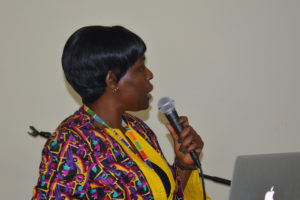
Photo: Elizabeth Nyadwe, Vice-President of Advocacy, Soroptimist International of Europe.
Elizabeth Nyadwe, Vice-President of Advocacy, Soroptimist International of Europe, explored the journey of the Mwihoko Women, part of the Soroptimist International ‘Women, Water & Leadership Appeal’, which is educating and empowering 500 women in Nakuru County, Kenya. Understanding the need to invest in women and their communities to create sustainable solutions, the Appeal is delivering an agricultural education and training programme designed and managed by local SI clubs and the Mwihoko community women. A properly cultivated selected crop is now active over 396 acres with 126 multi-story gardens, trees, seed nurseries and beehives. New technologies, tools and clean energy have been introduced, with water tanks, a toilet block, and the revamping of a community resource centre, resulting in the community being fully water self-sufficient. High-quality vocational training programmes are delivered to the women on sustainable farming techniques, in addition to a six-day residential farmer training course at Egerton Agricultural University.
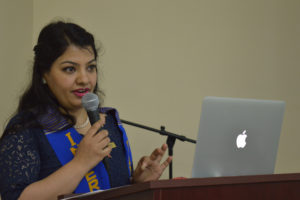
Photo: Amrita Gautam, Soroptimist International of Europe.
Soroptimist and PHD student, Amrita Gautam, gave an insightful presentation detailing the participation of women in the water sector in Nepal, clearly identifying gaps in the uptake of training by women for roles within the industry. Gautam described the success of a previous Soroptimist International Appeal, Educate to Lead: Nepal, highlighting its success and describing some of its impact, in particular the Teacher Training and Quality Education Programmes, and the vocational training scholarships for girls.
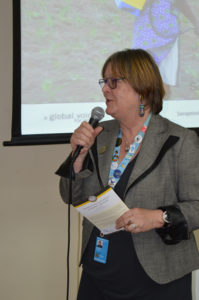
Photo: Lesha Witmer, Women for Water Partnership.
With an excellent moderated discussion led by Lesha Witmer, the event proved extremely interesting and gave valuable insight and country perspectives on the role of education and vocational training in sustainable development, and the interconnectedness of SDGs 4, 5 and 6.

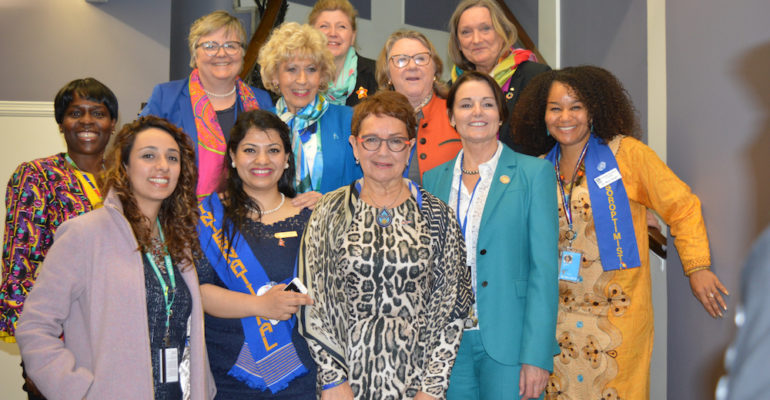
Great job and an informative workshop.
This article, and the event that the article mentions shows a true understanding of vocational training and why it is important. Thanks for sharing.